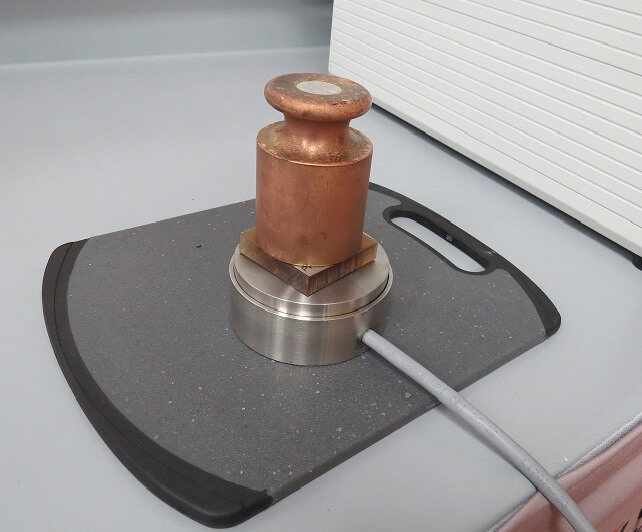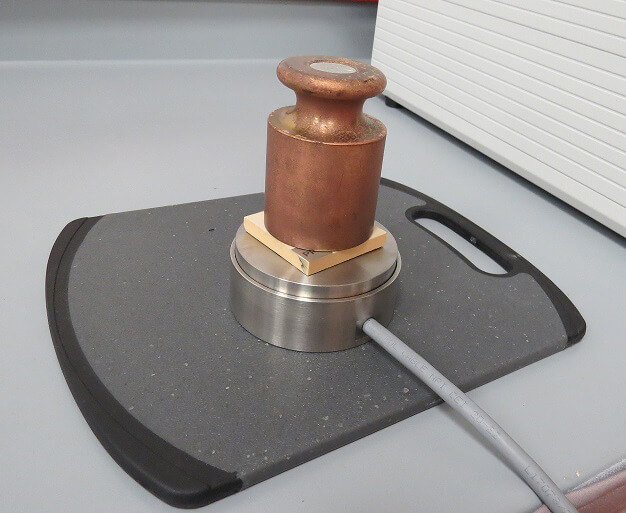
August 25, 2015
Both PPS and PPSU thermoplastics have exceptional stiffness, chemical resistance, high strength, and dimensional stability that is increased further by fiber reinforcement. Applications for these plastics range from medical, automotive, and various engineering disciplines. Properties are very similar for heat capacity and density, however they differ in strength to weight ratio (PPS: 63 to 136 kN-m/kg PPSU: 51 to 82kN-m/kg), and tensile strength (PPS: 85 to 190 MPa PPSU: 70 to 130 MPa).
Alongside testing of polyphenyl sulfone and polyphenylene sulfide, other possible polymers to be tested are: fluorinated ethylene propylene, poly(etherether-ketone), polysulfone, polyetherimide, polytetrafluoroethylene, and polyamide-imide.
Thermal Property measurements were performed using the convenient Hot Disc TPS single-sided sensor. The TPS single-sided sensor is ideal when only one sample piece is available or when testing large hard to handle samples.
Transient PlaneSource Bulk Measurements:
Experimental set up is extremely easy, and achieved by placing the material sample on top of the sensor. A weight is added on top of the sample to ensure good sensor to sample contact. This unique sensor offers excellent accuracy and repeatability without the requirement of two pieces of sample. The TPS single-sided sensor may also be inverted for larger samples.

Figure 1. Polyphenyl sulfone (PPSU) experimental set up.

Figure 2. Polyphenylene sulfide (PPS) experimental set up.
Parameters of test time for both PPSU and PPS: 40 seconds @ 0.1W were selected to ensure representative 3-dimensional heat penetration, without testing beyond any of the dimension boundaries of the sample. This is easily determined, as the Hot Disc TPS measures the thermal diffusivity (mm2/s), thus the penetration depth is calculated and displayed. It is important to make sure the penetration depth from measurement is less the available probing depth, this will result in a clean signal free of any reflections.
Once measurement is complete, the contact resistance between sensor and sample may be removed by simply selecting and removing the portion of time which represents the non-linear portion of the temperature vs time curve. This is easily accomplished with the easy to use Hot Disc TPS 7.2.1 Software.
After calculations, the testing results of thermal conductivity (W/m•K) and thermal diffusivity (mm2/s) for the sample materials are displayed (See Tables 3 and 4).
Table 3. Bulk thermal conductivity and thermal diffusivity for polyphenyl sulfone (PPSU).
| Bulk Thermal Conductivity (W/m•K) |
Bulk Thermal Diffusivity (mm2/s) |
Standard Deviation (for λ*) |
| 0.3097 | 0.2043 | 0.006142 |
Table 4. Bulk thermal conductivity and thermal diffusivity for polyphenylene sulfide (PPS).
| Bulk Thermal Conductivity (W/m•K) |
Bulk Thermal Diffusivity (mm2/s) |
Standard Deviation (for λ*) |
| 0.2989 | 0.1928 | 0.005492 |
When compared to the reference values obtained by ASTM C177 (0.30 W/m•K for both PPSU and PPS), the measured bulk values were found to be extremely close with better than 5% accuracy. Percent differences in comparison to the reference value were 3% and 0.4% for PPSU and PPS respectively